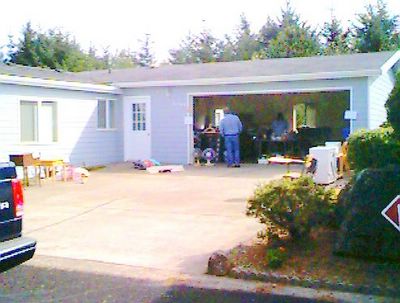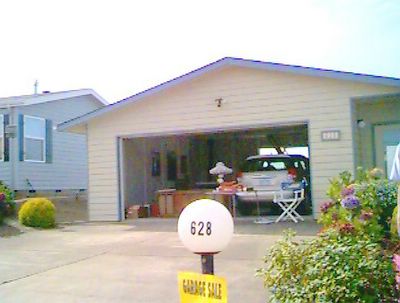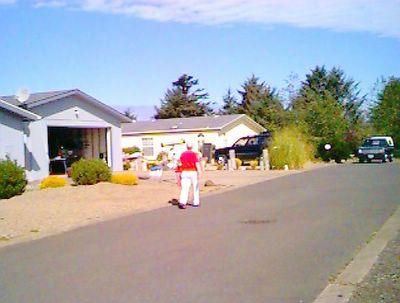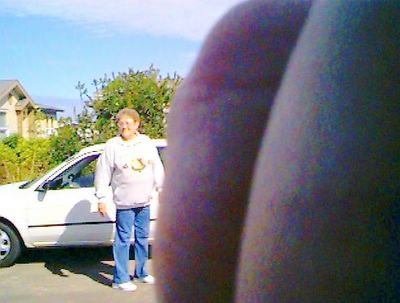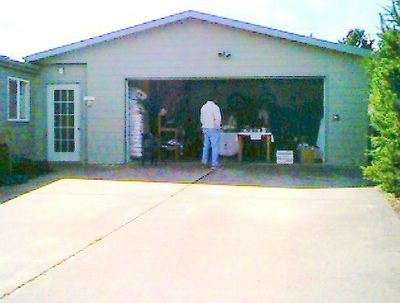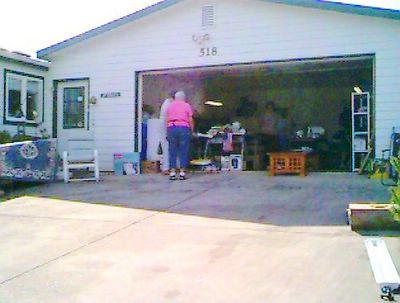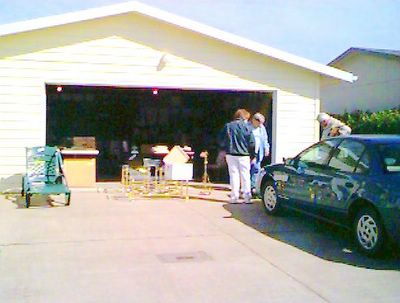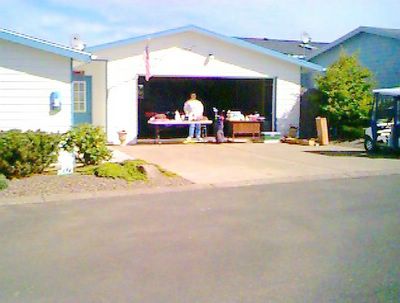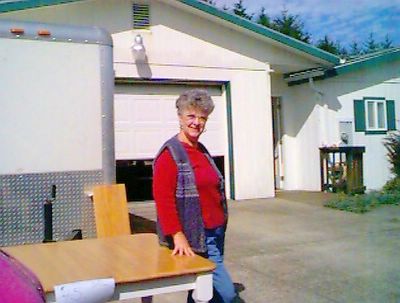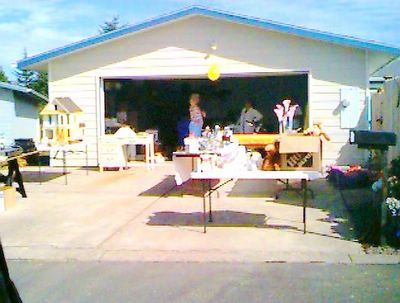Law would better fate of mobile home owners
sent via email from Wayne Hill
By Peter Ferris
Published: Monday, August 29, 2005
In the 18th century, the English cleared peasants from the highlands of Scotland. Those affected felt emotional distress from the collapse of their communities, increased poverty and homelessness. For the power elites: large estates, increased earnings and population control.
We witness the same phenomenon today as developers clear out the most vulnerable in our society - the aged, the poor, the disabled - from mobile home parks. This, of course, comes with the consent of the park owners, who find it irresistible to cash in on the millions offered.
Last spring, rumors were flying about the possible closure of the mobile home park where I used to live. Briarwood, with 250 spaces in west Eugene, was built in 1976. After a California corporation purchased it in the early 1990s, it became a senior park.
advertisement
The managers of the park can be best described as doing the bare minimum. I was an assistant manager for the weekends, and got to know their style well. They low-ball their on-site employees Wal-Mart style, generally ignore maintenance and stonewall tenants when contentious issues come up.
A few of us speculated that land-hungry developers had begun to court the owner. Since deferred maintenance had become a liability in the 30-year-old park, we reasoned he might want to sell all or part of it. We felt it was no coincidence that homes starting at $200,000 were being built on two adjacent parcels of land. When called by one of the park residents, the son of the owner adamantly denied the rumors.
Under state law, owners enjoy quite a bit of flexibility when closing or converting a park. Their only significant obligation involves a six-month notice, which requires them to reimburse tenants up to $3,500 for moving their homes, a figure that has been on the books since 1987.
Owners could, however, easily avoid such payment by giving a year's notice, which would require tenants to pay the full cost. (Relocating a mobile home can run from $7,000 to $15,000.)
During the past legislative session, as the Oregon real estate market heated up, a statewide coalition tried to come to some agreement about revisiting these statutes. However, the effort reportedly failed because of a small group of owners who insisted they wanted no changes - not surprising, since the law clearly favors them.
But late this spring, the residents of Thunderbird Mobile Club in Wilsonville and Willamette Cove in West Linn began calling lawmakers to protest. When the tenants of Willamette Cove offered their owner $5.2 million to purchase the park, Sequoia Custom Homes of Clackamas upped the ante to $9.8 million.
Then things got really hot. Residents of both parks began picketing the potential buyer. A confab of legislators, city councilors and aides to the governor and U.S. Rep. Darlene Hooley met with the seniors to sympathize, but said that little could be done to prevent the sale of private property. One senior complained that the elderly had become expendable in "our throw-away society."
Enter Rep. Jerry Krummel of Wilsonville, a former mobile home resident. He drafted House Bill 2389, which offers incentives to owners to sell to tenant associations, nonprofit groups or community development corporations.
In addition, it grants tenants who meet federal poverty guidelines (approximately $18,000 per household) up to $10,000 in refundable tax credits, to be applied against moving costs. Those with incomes of more than $18,000 and less than $60,000 would get a nonrefundable tax credit.
advertisement
Another provision prohibits municipalities from restricting the number of older mobile homes in newer parks (although owners still may). The bill also creates a statewide database of vacancies, to be maintained by the Housing and Community Services Department.
Under HB 2389, owners gain a waiver of the state capital gains tax when they sell to the "right" groups. It's debatable, however, whether it will encourage the transfer of property rights to tenants, especially if owners get the kind of offers as the one in West Linn did. In addition, many of those eligible for the refundable tax credit might not be able to secure a loan before getting reimbursed by the state. The bill, which becomes law in January if signed by the governor, is estimated to cost the state $250,000 in tax revenue for the 2005-07 budget period.
In the end, perhaps the real strength of mobile home tenants will be their willingness to organize and speak out. The developer of the West Linn park rescinded the purchase offer, and rumor was that bad publicity was the reason. And maybe it might dawn on some developers that building affordable housing is part of their responsibility as good citizens.
But until then, perhaps maintaining affordable housing should trump the rights of private property, Measure 37 notwithstanding.
Peter Ferris (bumpy73@yahoo.com) is a writer and tradesman who now lives in Waldport.


